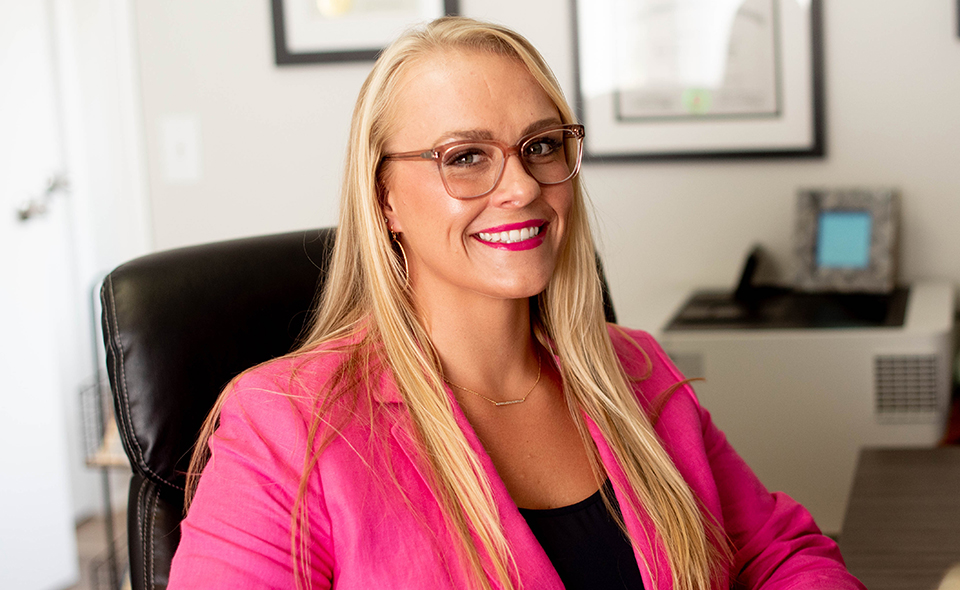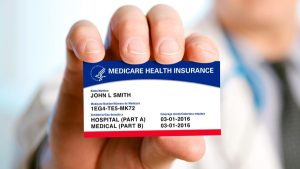We hear from elder lawyer and previously featured author Samantha McCarthy as she takes a closer look at emergency Medicaid applications and the assets relevant to their qualification.
To give a brief background for this conversation, what is emergency Medicaid, and what are its criteria in your jurisdiction?
Emergency Medicaid qualification is often sought when advance planning was not done, or when it was done but there are still assets considered available to pay for long-term care, coupled with an individual who has an immediate need for long-term care due to an inability to safely reside at home. This often comes into play when a person has been hospitalised and then was discharged to a skilled nursing facility for rehabilitation (also known as ‘skilled care’), during which period the person was receiving occupational or physical therapy.
Generally, Medicare or private health insurance will cover at least a portion of the cost of skilled care. However, after a certain period of time, the individual will be discharged from skilled care, based on a number of factors including their level of improvement as well as the number of days of coverage available under their private insurance. Once a person is notified that they will be discharged from skilled care, there is very often a short period of time in which plans must be made to either have the person safely discharged back into the community or, alternatively, transferred to unskilled, long-term care at the nursing facility.
This is when Medicaid comes into play. Once a person is deemed to be receiving unskilled care, their Medicare or private health insurance will no longer contribute to the cost of long-term care. Therefore, people are left to look to their own assets to pay for the private pay cost of care (estimated to cost between $9,000-$15,000 per month in Rhode Island) or, if their assets are insufficient to pay for this cost of care, then they must look for assistance to pay for the care via Medicaid.
Once a person is deemed to be receiving unskilled care, their Medicare or private health insurance will no longer contribute to the cost of long-term care.
How do you determine if emergency Medicaid planning is necessary?
Typically, when a person needs to qualify for long-term care coverage through Medicaid, the first step is to evaluate all assets of the person in need of care (the ‘applicant’) as well as those of their spouse (the ‘community spouse’), if any, and all income sources for the applicant.
As a general rule, the income of a community spouse is not available to pay for an applicant’s long-term care. However, all income of the applicant is considered available to pay for their long-term care, and the only deductions the applicant is allowed to make from their gross income before paying the nursing home is the cost of any private health insurance/Medicare premiums, plus a personal needs allowance, which in Rhode Island is $50 per month. The remaining income is what is known as the patient share and must be paid to the nursing home towards the monthly cost of care. If this income is insufficient to cover the total monthly cost of care, the applicant must then look to their other available resources to pay for the care, or alternatively, apply for Medicaid.
In Rhode Island, for an individual applicant, assets in excess of $4,000 from the following are considered available:
- Checking, savings, and brokerage accounts
- CDs, stocks, and bonds
- Real property other than a primary residence
- Life insurance with cash value in excess of $4,000 for medically needy applicants
In Rhode Island, exempt assets for an individual applicant, include the following:
- $4,000
- An irrevocable prepaid funeral plan up to $15,000 in value
- A burial savings account up to $1,500 in value
- A primary residence with an equity value not in excess of $636,000.00 (so long as the applicant maintains an intent to return home)
- A primary residence of any equity value if the community spouse, a child under age 21, or a blind or disabled child of any age lives there
While an applicant cannot be forced to sell their home while applying for or receiving Medicaid, it is important to remember that an applicant’s income cannot be used to support the household expenditures once Medicaid coverage applies. Additionally, while the home cannot be forced to be sold during the applicant’s lifetime, there may be a lien placed upon the probate estate of the applicant upon passing, which could force the sale of the real estate to pay off the lien equal to the sum of what Medicaid paid out for the care of the applicant during his or her lifetime. There are some limited exceptions to this rule and ways that a house can be protected in specific circumstances. An elder law attorney can help determine if any of those situations apply to your specific situation.
Other exempt assets in Rhode Island include:
- One vehicle
- Life insurance with no cash value
- Life insurance with cash value if the cash value of all policies is less than or equal to $4,000 for medically needy applicants
- Retirement funds so long as a required minimum distribution is being taken based upon the life expectancy of the owner
It is also worth noting, if the applicant has a community spouse then the available asset limits change based on the Community Spouse Resource Allowance, which currently ranges from $27,480 to $137,400.
In your experience, what methods are typically most effective for removing liquid capital from an estate in order to reach the requisite criteria to become Medicaid eligible?
Typically, if an applicant (and his or her community spouse, if any) has assets in excess of allowable asset limits for Medicaid eligibility, that is when emergency Medicaid planning becomes an option.
It is important to remember that an applicant’s income cannot be used to support the household expenditures once Medicaid coverage applies.
If the applicant has a community spouse, we often recommend a promissory note for an amount equal to the assets in excess of the allowable asset limits, with income via promissory note payments being made back to the community spouse. If the applicant does not have a community spouse, then we instead often recommend gift and loan (also sometimes referred to as half-a-loaf) planning, which involves a carefully calculated and structured gift and promissory note out of the applicant’s name, with promissory note payments being made back to the applicant as an income source. The note repayments being considered income means that they must be paid towards the cost of care, but after the note repayment period is completed, the gifted funds will have been saved.
Another option, in lieu of a promissory note in either of the situations above, is a Medicaid-qualified annuity.
Why is it important to consult an elder law attorney when attempting to achieve eligibility for emergency Medicaid?
It is important to consult with an elder law attorney when attempting to achieve eligibility for emergency Medicaid because the rules for and regulations governing qualification are extremely complex. Many people attempt to apply on their own, with the best of intentions, but without a thorough understanding of the rules and regulations.
The rules and regulations, when considered alongside the specific care needs – as well as income and assets of the applicant and spouse (if any) – can apply very differently depending upon the applicant’s specific situation. As a result, a simple mistake in calculations or misunderstanding of the rules can often cost a family tens of thousands of dollars (if not more) in penalties or nursing home payments during times when the applicant is unqualified for often very nuanced reasons.
[ymal]
Additionally, due to the processing timelines of an application for Medicaid, applicants often will not know of mistakes they have made in the application or calculation for eligibility process until at least three to six months after the application has been submitted. Therefore, there may not be the ability at that point to go back and fix mistakes, which results in private payment at the full daily and monthly rate being required for that period of time when the applicant was awaiting processing of the Medicaid application but was not in fact eligible due to a miscalculation or misunderstanding of the rules and regulations.
Samantha McCarthy, Founder
19 First Avenue, East Greenwich, RI 02818
Tel: +1 401-541-5540
Samantha McCarthy founded McCarthy Law with a goal of making a meaningful impact in the lives of others. Currently residing in Smithfield, Rhode Island, and licensed to practice law in both Rhode Island and Massachusetts state courts, she has been recognised by the Feinstein Center for Pro Bono & Experiential Education for her extensive public interest legal work and commitment to public service. She prides herself on being approachable and compassionate, and believes in developing relationships with her clients that allow both parties to grow and learn.
McCarthy Law LLC is an estate planning and elder law firm that assists clients with the creation of estate plans, advice on elder care issues, and aid with long-term care and Medicaid planning. The firm’s goal is to build relationships with clients where they feel listened to, understood and cared for.





















